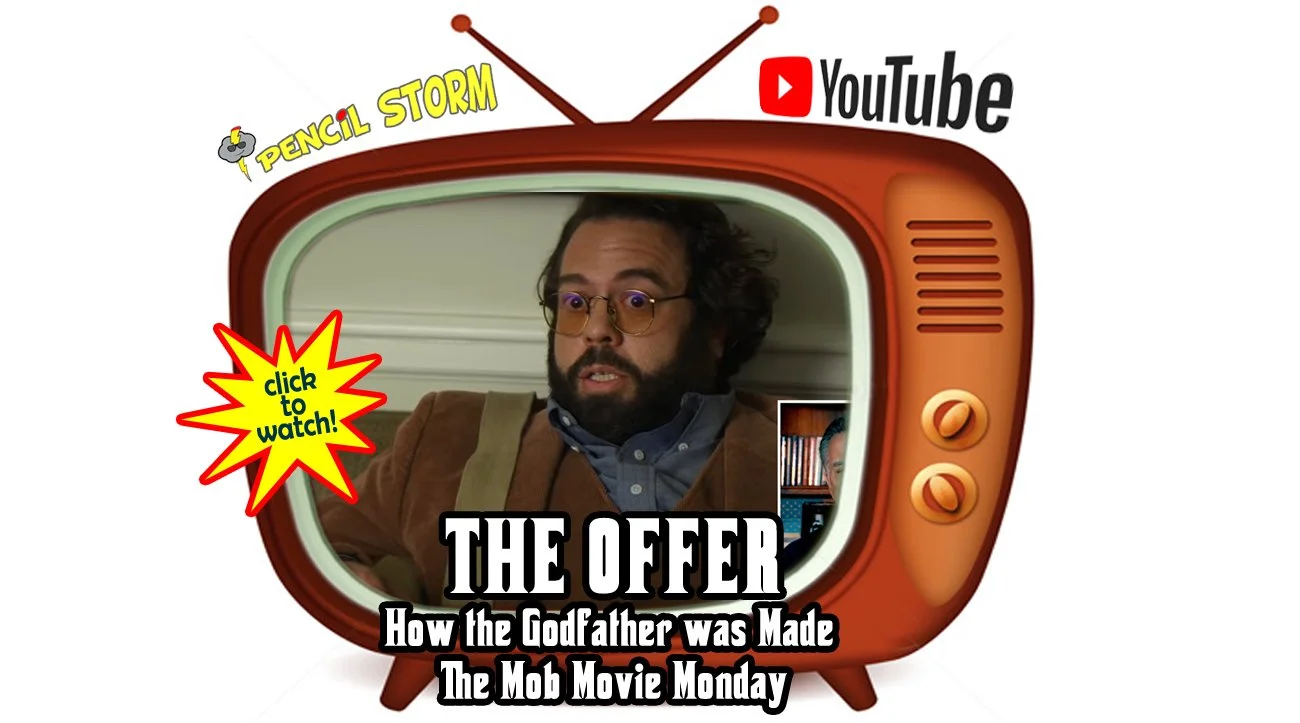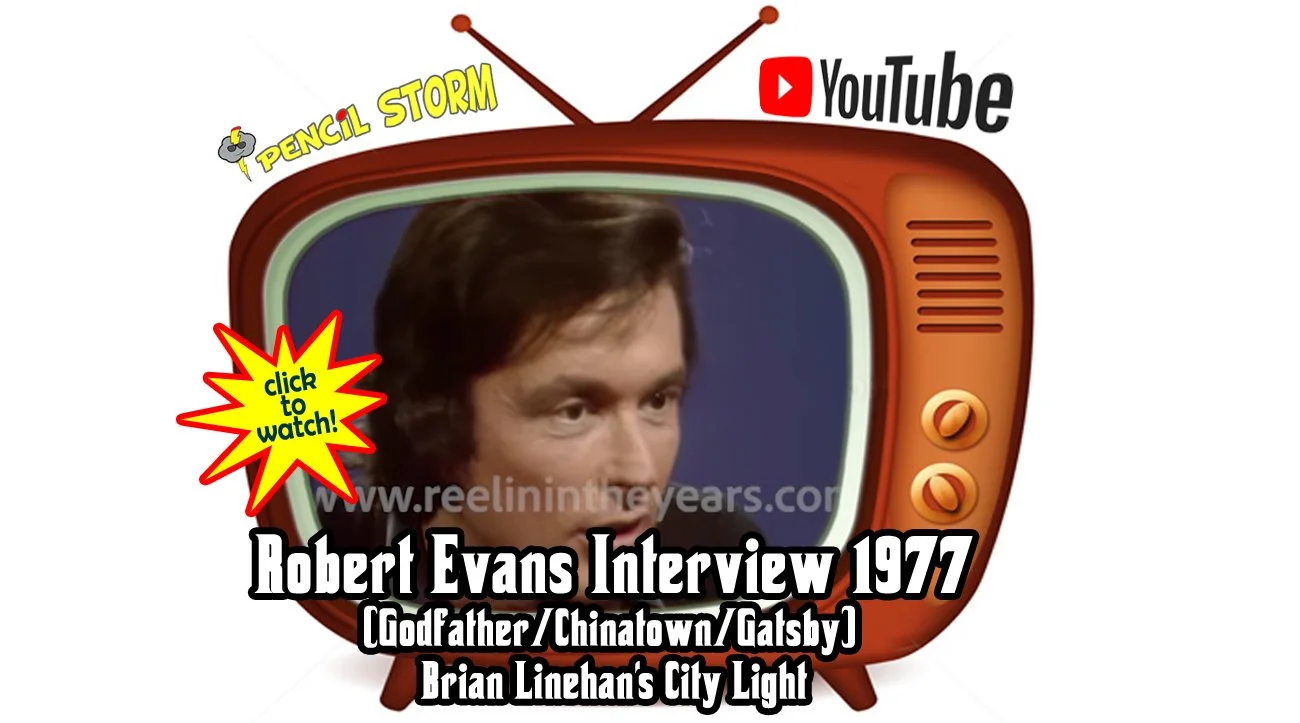The Mount Rushmore of motion pictures is a topic of conversation at Oscar parties, booths in bars and restaurants, and click-bait websites everywhere. The Wizard of Oz, Citizen Kane, and in more recent years The Shawshank Redemption are all part of the conversation. There are a small handful of more debatable titles too, but there can be no question that The Godfather would be on there, most likely the cornerstone. There’s not much I can say about The Godfather that hasn’t already be said, and there aren’t many films that inspire offshoots about their own creation, but there is a miniseries on Paramount+, released last spring, that dramatically chronicles the making of the film, bringing some new perspective and some colorful behind-the-scenes stories to light in ten episodes.
Center to the series is Al Ruddy, the first-time producer known at the time mostly for bringing Hogan’s Heroes to the small screen. Miles Teller’s portrayal of the young and naïve, but driven, daring and sometimes brazen film-maker is the real core of story here. His journey takes him places you’d expect – arguments with the brass and between the crew – and places you wouldn’t. Giovanni Ribisi’s portrayal of mobster Joe Columbo’s relationship with Ruddy is complicated, and his motives are unclear, but it’s a key side story to the making of the film.
Bettye McCartt, played by Juno Temple (known as Roy Kent’s girlfriend and fantastic second female-lead in Ted Lasso), is Ruddy’s (way more than a) secretary. Matthew Goode plays Robert Evans, stereotypical coked-out-of-his-skull, smooth talking head of Paramount Pictures, and Burn Gorman plays grumpy Austrian chairman of Paramount-parent Gulf + Western Charles Bluhdorn, one of many antagonists in the show. McCartt shines, but it’s Goode’s performance that takes us from hating to rooting for a character faster and more dramatically than I can remember in some time. And of course there’s Coppola, played brilliantly and effortlessly by Dan Folger, and Godfather novel author and script co-write Mario Puzo, comically portrayed by Patrick Gallo.
It's an underdog story in the end. No one believed in it. They had a shoestring budget and every turn was another roadblock. Coppola insisted on Pacino, but Evans hated the idea. The New York Italian mob was ready to blow up Hollywood if the film was made (until Columbo got involved) and Ruddy had no leverage….until Brando signed on. The first 5 or 6 episodes deal with all of this – casting, cash, and locations. I was starting to wonder if the series would end when filming started, but thankfully the last few episodes covered that.
There is some fluff too. Evans’ love interest, Ali MacGraw, is probably a bigger character than necessary, or so I thought, until her departure into the arms of Steve McQueen sends him on a downward spiral that ultimately leads to his redemption and truly humanizes him, and without her screen time, it would have been less convincing. It’s a bit heavy on “what happens next” near the end as Ruddy transitions into his pet project The Longest Yard, with an unnecessary Burt Reynolds portrayal appearance, but these are mostly forgivable and occasionally interesting bits to see.
And then there’s the “did that really happen?” factor. A lot of it really did, apparently. As always, some creative time shifting and events are added. I can’t imagine there would have been any reason for Brando to be on set when they filmed the horse head scene, for example. Some of the casting is a bit subject too. Pacino is at times alarmingly accurate, and at others, almost a stand-up comic’s impression. Frank John Hughes’ portrayal of Sinatra yields moments where you can see Old Blue Eyes through the performance, but the physical differences are hard to overcome. And both Goode’s Evans and Gorman’s Bluhdorn are so over the top that it’s hard to discern the stereotypes from the real people that defined the very stereotypes in the first place. James Caan, Robert Duvall, and the brilliant John Cazale are almost non-existent characters, despite their key roles in the film.
If you aren’t familiar with or just a casual fan of The Godfather, you’ll probably struggle to make it through the series. You almost have to be obsessed to dive this deep, and that very obsession comes with the curse of hyper-analyzing every scene, character, and situation. Those of us who still get nervous even though we’ve seen the causeway scene 100 times, we know the gun is taped up behind the toilet box, and we understand that Luca Brasi has the best intentions, well, we have to see this. If you can forgive some minor flaws, over-acted characterizations, and a couple too many side-plots, it’s a fairly engaging and captivating watch and recommended viewing.
Jeremy Porter lives near Detroit and fronts the rock and roll band Jeremy Porter And The Tucos. Follow them on Facebook to read his road blog about their adventures on the dive-bar circuit.
www.thetucos.com
www.facebook.com/jeremyportermusic
www.rockandrollrestrooms.com
Twitter: @jeremyportermi | Instagram: @onetogive & @jeremyportermusic








